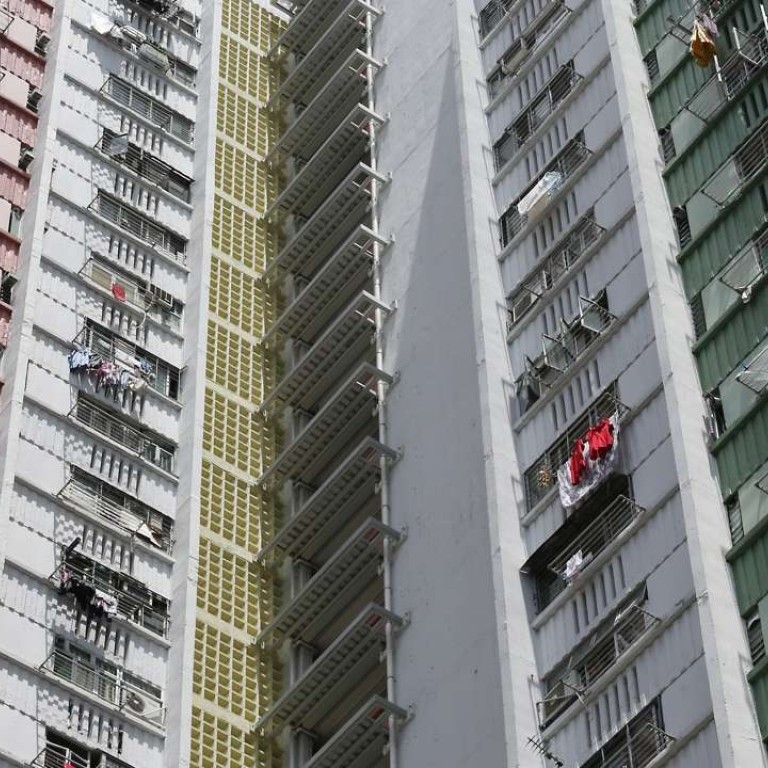
Letters to the Editor, February 20, 2017
More must be done to ease housing woes
Many families are now having to wait more than 4½ years to get a public housing flat. In fact, the waiting time has increased over the past 12 months and it is the biggest annual leap since Leung Chun-ying took office as chief executive.
There are further policies the government could implement to improve matters. It could build some transitional units where people can live temporarily while they wait for their public housing flat.
Members of the middle class are suffering from soaring rents and property prices. This is a shame, especially when they contribute so much to the government’s revenue annually through the taxes they pay. Unfortunately, their voices are not being heard and their demands are ignored.
The government should try and help them and it should find ways to cut the public housing waiting lists. There are other property related issues that the administration should also be addressing, including preventing developers from hoarding property and land banks, in order to limit the supply of flats and so keep prices high.
Special provisions could be included in land sale contracts, so that flats, once built, are made available on the market. We need a healthy and sustainable property market that is also affordable and fairer.
Jennifer Li, Kwai Chung
Urban heat island effect is a major factor
Warmer conditions in megacities all over the world are more likely to be the result of the urban heat island effect instead of global warming. This can easily be demonstrated by a comparison of temperature records of urban and rural stations.
Factories are not the only cause of smog. Pollutants are released into the atmosphere through many forms of human activities including transportation, power generation and fires. Meteorological conditions in northern China favourable for smog development also include temperature inversion under anticyclone situations which are common during the dry winter monsoon.
This is further exacerbated by the canyon effect of high-rise buildings in cities, which is a better explanation for weakening wind speeds.
Smog is worsening because of population growth and lifestyle changes, including the explosive increase in air travel.
In order to establish whether global warming is real, an experiment banning all air travel worldwide for two to three weeks is needed. This should enable scientists to determine whether heat generation or carbon dioxide emissions are more important in human-induced climate change.
After the three-day curfew of commercial flights over North America following 9/11 in 2001, diurnal temperatures over the continent increased by over 1.5 degrees Celsius.
This is best explained by the absence of contrails composed of water vapour and ice crystals resulting in greater maximum temperatures during the day and lower minimum temperatures during the night. The greenhouse effect of clouds and water vapour as stated in the 2010 climate change statement of the Royal Society is a greater contributor to a warmer world than carbon dioxide.
Wyss Yim, Pok Fu Lam
We should try to preserve hawker culture
Street hawkers are part of our collective memory, but the government has been trying to gradually phase them out. They provide different kinds of food at cheap prices.
This is a unique part of our culture. Officials cited hygiene considerations for stopping issuing licences, but there are ways of dealing with that. Pavements in some of the old urban districts could be widened, so the hawkers could operate in a clean environment. Officers could ensure they did not pose a noise problem for local residents. The new food trucks cannot be considered an adequate replacement for hawkers.
Having rules about good hygiene and where hawkers can operate, and at what times, could solve many problems.
Many of the people who get involved in hawking would find it difficult to make a living in any other way, so they should be given the chance to remain in operation.
Sharon Cheng, Yau Yat Chuen
Ban offensive to Muslims globally
US President Donald Trump tried to ban people from seven Muslim-majority countries, because he said he wanted to protect Americans.
However, many Americans were angered by this executive order and it was suspended by federal courts.
Trump should have cancelled this order. The US benefits a lot from tourists, including visitors from some of these countries. They help the domestic economy by spending a lot of dollars. Also, hi-tech firms hire talented people from these nations and they also objected to the executive order.
It was offensive of Trump to lump all Muslims together, just because of Islamic terrorists. It is very dangerous to label people in this way, and unfair. It will also damage relations between the United States and those nations which have a large Muslim population.
Trump is entitled to come up with policies aimed at protecting the US from terror threats, but this is not the right way of doing that.
Christy Chung Chi-ching, Kowloon Tong

